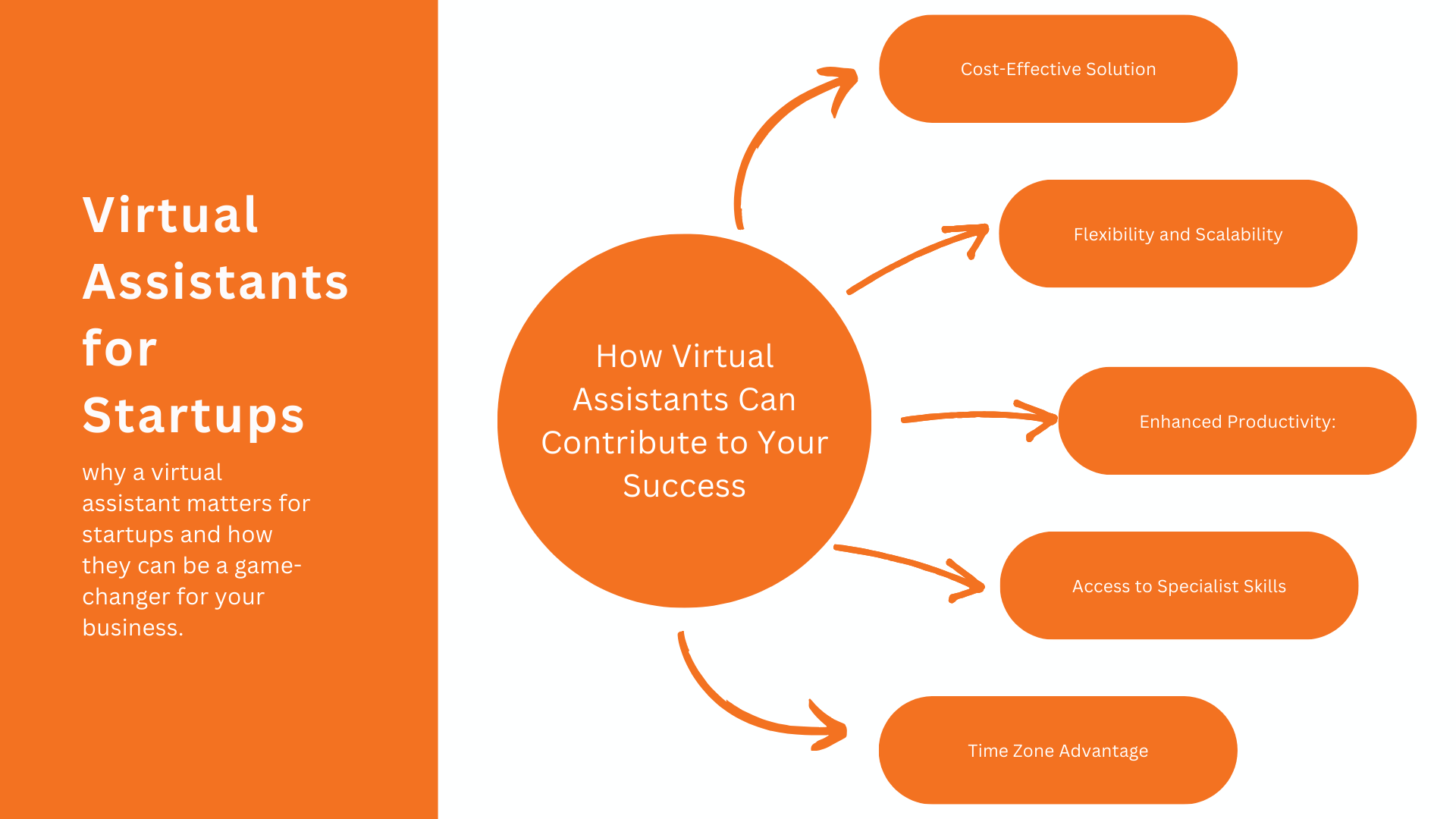
Virtual assistants can be a valuable asset for startups. They are skilled professionals who work remotely to help businesses with various tasks, including administrative support, data entry, and search engine optimization (SEO). Virtual assistants offer many benefits, including flexibility, cost savings, and streamlined operations.
One of the primary advantages of hiring a virtual assistant is that they work remotely, which means they can be hired from anywhere in the world. This provides businesses with access to a global talent pool, allowing them to find the best virtual assistant for their specific needs. Virtual assistants are also highly flexible, which means they can work outside regular office hours or during peak workloads.
Hiring a virtual assistant can be highly cost-effective for startups. Virtual assistants work as independent contractors or through virtual assistant agencies, eliminating the need for overhead expenses such as office space and equipment.
In the dynamic and competitive world of startups, entrepreneurs face numerous challenges, including limited resources, tight budgets, and the need for quick and efficient operations. In such a scenario, virtual assistants (VAs) have emerged as a vital tool for startups, providing cost-effective solutions and a range of benefits. This blog post explores why virtual assistants matter for startups and how they can contribute to their success.
-
Cost-Effective Solution: Startups often operate on tight budgets, making it vital to find economical alternatives. Unlike hiring full-time employees, which incurs significant expenses in terms of salaries, benefits, and office space, virtual assistants present a more affordable option. Additionally, transitioning to VAs enables startups to access skilled professionals without the financial burden associated with traditional employment models.
-
Flexibility and Scalability: The dynamic nature of startups necessitates flexibility and scalability in their operations. Virtual assistants offer the adaptability required to accommodate fluctuating workloads and changing demands. Whether it involves managing administrative tasks, overseeing customer support, or assisting with marketing campaigns, VAs can seamlessly adjust to these evolving requirements. Startups can effortlessly increase or decrease their virtual assistant workforce, ensuring optimum efficiency and cost savings.
-
Enhanced Productivity: Entrepreneurs often find themselves overwhelmed with multiple responsibilities, which can hinder their ability to focus on strategic activities. By entrusting time-consuming tasks, such as data entry, research, and administrative work, to virtual assistants, entrepreneurs can redirect their attention to core business functions. This delegation of responsibilities to VAs bolsters productivity, enabling startups to prioritize activities that contribute directly to business growth.
-
Access to Specialist Skills: Startups often require specialized expertise in areas such as marketing, social media, content creation, or graphic design. However, maintaining a team of full-time employees for each specialized role may prove impractical or unnecessary. Virtual assistants offer an advantageous solution by providing access to a diverse talent pool with specialized skills. Moreover, startups can tap into these talents on-demand, guaranteeing high-quality work without committing to long-term employment contracts.
-
Time Zone Advantage: Startups operating in the global marketplace encounter the challenge of providing customer support beyond regular business hours. However, virtual assistants residing in different time zones can bridge this gap, ensuring round-the-clock availability and seamless customer service. By leveraging VAs across various regions, startups can cater to a worldwide customer base, bolstering their reputation and gaining a competitive edge.
Conclusion
In the fast-paced and resource-constrained environment of startups, virtual assistants play a crucial role in driving success. With their cost-effectiveness, flexibility, productivity enhancement, access to specialist skills, and time zone advantage, VAs empower startups to focus on core activities, reduce operational costs, and scale their operations efficiently. Embracing the potential of virtual assistants is a strategic move that can give startups a competitive edge and contribute to their long-term growth.



 1150 Nw 72nd Ave Tower 1 Ste 455 #12217, Miami, Florida 33126
1150 Nw 72nd Ave Tower 1 Ste 455 #12217, Miami, Florida 33126 
